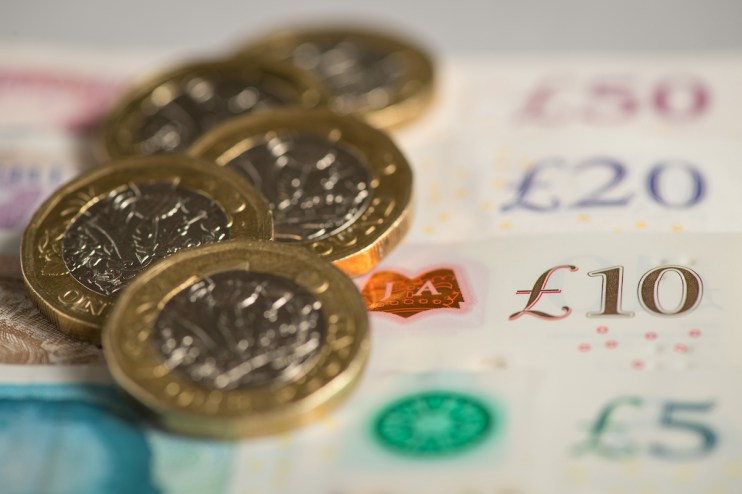Pound records strong week as London markets expects Bank to hike rates further

The pound has recorded its strongest week against the dollar in half a year as investors expect the Bank of England to keep hiking rates after the Fed has paused.
Across the week, the pound gained more than 1.5 per cent against the dollar to trade at over $1.2530 on Friday afternoon.
The pound performed strongly as investors expect the Bank of England to keep hiking rates, due to stubbornly high inflation, while the Fed is expected to pause earlier.
Although headline inflation fell into single digits last month, core inflation actually increased. This suggests inflation is becoming increasingly domestically driven, and therefore more entrenched.
Researchers at Goldman Sachs reckon the Bank will have to lift rates three more times this year, taking the base rate to 5.25 per cent.
Susannah Streeter, head of money and markets, Hargreaves Lansdown commented: “Sterling has made fresh strides against the dollar this week as expectations rise that the Bank of England will have to keep raising interest rates, while the Federal Reserve’s hiking cycle is expected to be at or almost at an end.”
The pound continued climbing today, rising 0.1 per cent, despite a strong jobs report from the US. The US economy added 339,000 new jobs in May, nearly twice as many as expected.
Today’s US jobs figures, and what the Fed will do next
This will complicate the picture for the Federal Reserve. The central bank had signalled they were likely to keep rates steady at the next monetary policy meeting on 14 June.
The strength of today’s jobs report may force them to think again as it points to a red hot labour market. As analysts at Pantheon Macro wrote: “For the Fed: This is a nightmare report.”
“Do they stick to incoming VC Jefferson’s clear signal of a June pause, just a couple days ago, or do they rewrite the script? With no more voting speakers scheduled before the meeting, we’re assuming no change in rates is still the most likely outcome”.
Aside from the jobs report, the dollar softened as a result of agreement on lifting the debt ceiling. The agreement significantly reduces the risk of major financial instability, taking away the part of the attraction of the dollar as a safe haven.
As Streeter noted: “The dollar is seen as a safe haven and had been attracting capital amid uncertainty about the debt ceiling being breached, but as the bill passed through Congressional hurdles, it has also seen the dollar weaken.’’
This week also saw inflation in the eurozone fall to its lowest level since Russia’s invasion of Ukraine. Consumer inflation rose by 6.1 per cent while core inflation came in at 5.3 per cent.
The European Central Bank is expected to hike rates once more this year. The pound climbed 1.1 per cent against the euro over the week to €1.16. This was its best weekly performance in around four months.